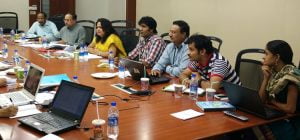Social Audit
The evaluation of the social responsibilities of an industry, company, or firm is defined as Social Audit. In practice, it can be called the appraisal of the activities of the social responsibilities of an organization. Every industry runs in the society, for the society, thus the aim of any industry is not only to earn maximum profits, but it has some responsibilities towards the society in which it exists. Through this type of audit, the auditor examines as to what extent the industry is carrying out its responsibilities.
Liabilities and Objectives
Following are the main liabilities or objectives of social audit
- To increase the employment opportunities along with the development and expansion of industries.
- Engaging in the welfare activities for the workers along with paying them proper wages.
- Establishing new industries in economically backward areas.
- Responsibility for maintaining a good environment inside the industry and quick completion of the work.
- Responsibility for providing quality products to the customers.
- Maintaining a healthy social environment in the industry and related areas.
- Responsibility for timely compliance of several governmental duties like paying taxes on time, etc.
- Responsibility of providing fair returns to investors.
- Providing better conditions’ of work to laborers.
- Developing good relations between labor and management.
- Continuous efforts toward employee development.
- Continuous efforts towards the development of industries.
Scope Of Social Audit

The scope of this type of audit is very wide, but the problem arises in determining the analysis and limits of those welfare activities. Only after the analysis and determination of limits of these services, the scope of social audit can be determined, and the auditor can analyze those activities which the industry performs for the society.
In this way, it is clear that the responsibility of a social audit is to attain social objectives. The attainment of this object is possible only when the auditor presents his unbiased report after its examination, as to what extent the industry has carried out its responsibilities, and whether there is any deficiency in carrying out their responsibilities, the reasons behind it and the method of solving them.
Other types of audits.
